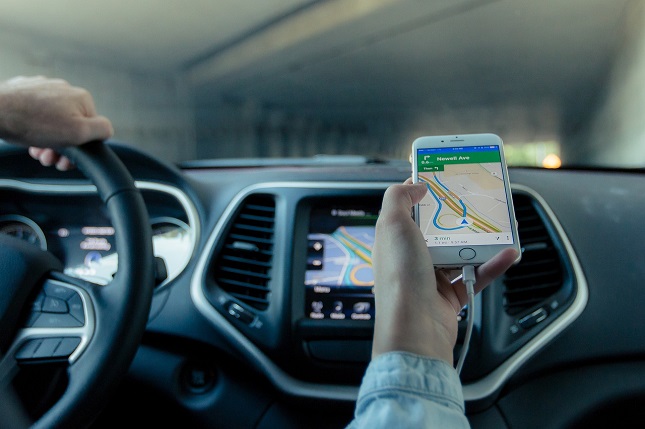In today’s business world, technology isn’t just a convenience; it’s an essential asset, especially in industries that rely on transportation. For companies managing commercial vehicles, dash cams have quickly become valuable, offering far more than basic recording. They’re now crucial for improving operational efficiency, increasing safety, and protecting assets. By capturing real-time footage of drivers and the road, dash cams provide otherwise unavailable insights, making them an investment that’s hard to overlook.
Here are practical reasons why every commercial fleet should consider using dash cams and how they can impact safety, cost, and accountability.
Improved Fleet Oversight
Dash cams have evolved beyond basic video recording, incorporating features like GPS tracking to provide a comprehensive view of fleet operations. For companies needing precise vehicle tracking, a dash cam with GPS tracking for trucks offers dual benefits of location accuracy and incident documentation. Fleet managers can monitor vehicle routes, verify deliveries, and improve dispatch efficiency by accessing real-time GPS data.
This technology also provides insight into driver habits such as speeding, idling, or taking unauthorized detours, which can directly impact fuel costs and delivery times. By identifying and addressing these behaviors, companies can boost efficiency while reducing operational costs—an advantage that enhances the bottom line and contributes to better customer service.
Enhanced Safety for Drivers and Cargo
Safety is paramount for any business with drivers on the road, and dash cams are essential in supporting that goal. By capturing footage of the road ahead, dash cams allow companies to identify and mitigate risky driving behaviors. Not only can they detect sudden braking, lane swerving, or speeding, but they also help drivers recognize areas where they can improve, leading to safer driving practices.
Moreover, dashcams offer accountability that benefits drivers and businesses alike. With video evidence of incidents, drivers can defend themselves against false claims, while companies can ensure their team upholds high safety standards. This tool becomes invaluable in protecting drivers, cargo, and the company’s reputation on the road.
Evidence in Case of Accidents
Having reliable evidence is critical in an industry where accidents can mean costly payouts and lost time. Dash cams provide a full, unbiased account of events, which can be pivotal in determining fault in an accident. This footage helps resolve disputes swiftly and fairly, making it easier for insurers to process claims accurately.
The presence of a dash cam can also deter fraudulent claims, which can be particularly beneficial for high-value cargo or vehicles that are often on the road. When drivers and other road users know they’re being recorded, the likelihood of opportunistic behavior decreases, potentially saving businesses thousands in legal fees and insurance premiums.
Driver Training and Performance Feedback
Dash cams don’t just capture footage; they serve as a training tool to help drivers improve their performance. By reviewing recorded incidents, fleet managers can provide constructive feedback, reinforcing positive driving habits while identifying areas for improvement. This targeted approach helps build a culture of accountability and safety within the company.
Using real-life examples from dash cam footage makes the training more relatable and impactful, especially for new drivers. Over time, drivers become more mindful of their actions, and this attention to detail reduces accident rates and improves the quality of service they provide. Not only does this benefit the company’s operational efficiency, but it also creates a safer environment for everyone on the road.
Reduction in Insurance Premiums
Insurance providers understand the value of dash cams to fleet management, often rewarding companies with lower premiums if they use them. Installing a dash cam provides documented evidence of responsible driving practices, which insurers see as a risk-reduction strategy. By reducing the company’s liability, dash cams can significantly lower insurance costs, making them an investment that pays for itself.
Dash cam footage also serves as a valuable tool for proving non-fault claims in case of an accident, which can help avoid premium hikes following a collision. With readily available documented proof, businesses can avoid drawn-out claims and costly disputes, saving time and money.
Protecting Company Assets and Reputation
Commercial vehicles represent a substantial investment, both in terms of cost and brand image. When a company vehicle is on the road, it’s a moving advertisement that reflects the company’s reputation. Dash cams help protect these assets by discouraging unsafe driving and holding drivers accountable for their actions. A company that prioritizes safety on the road projects an image of responsibility, which can strengthen client trust and brand credibility.
In addition, dash cam footage can provide insights into wear and tear on vehicles, allowing for more proactive maintenance. By recognizing signs of excessive strain or misuse, companies can manage their fleets more effectively, extending vehicle lifespan and maintaining reliability in their operations.
Dash cams are an invaluable tool for businesses, offering safety, efficiency, and cost-saving benefits across commercial operations. With features like GPS tracking, they provide insights that enhance driver accountability and fleet management. Investing in dash cams is a strategic decision that supports safety and strengthens company’s reputation on the road.







































